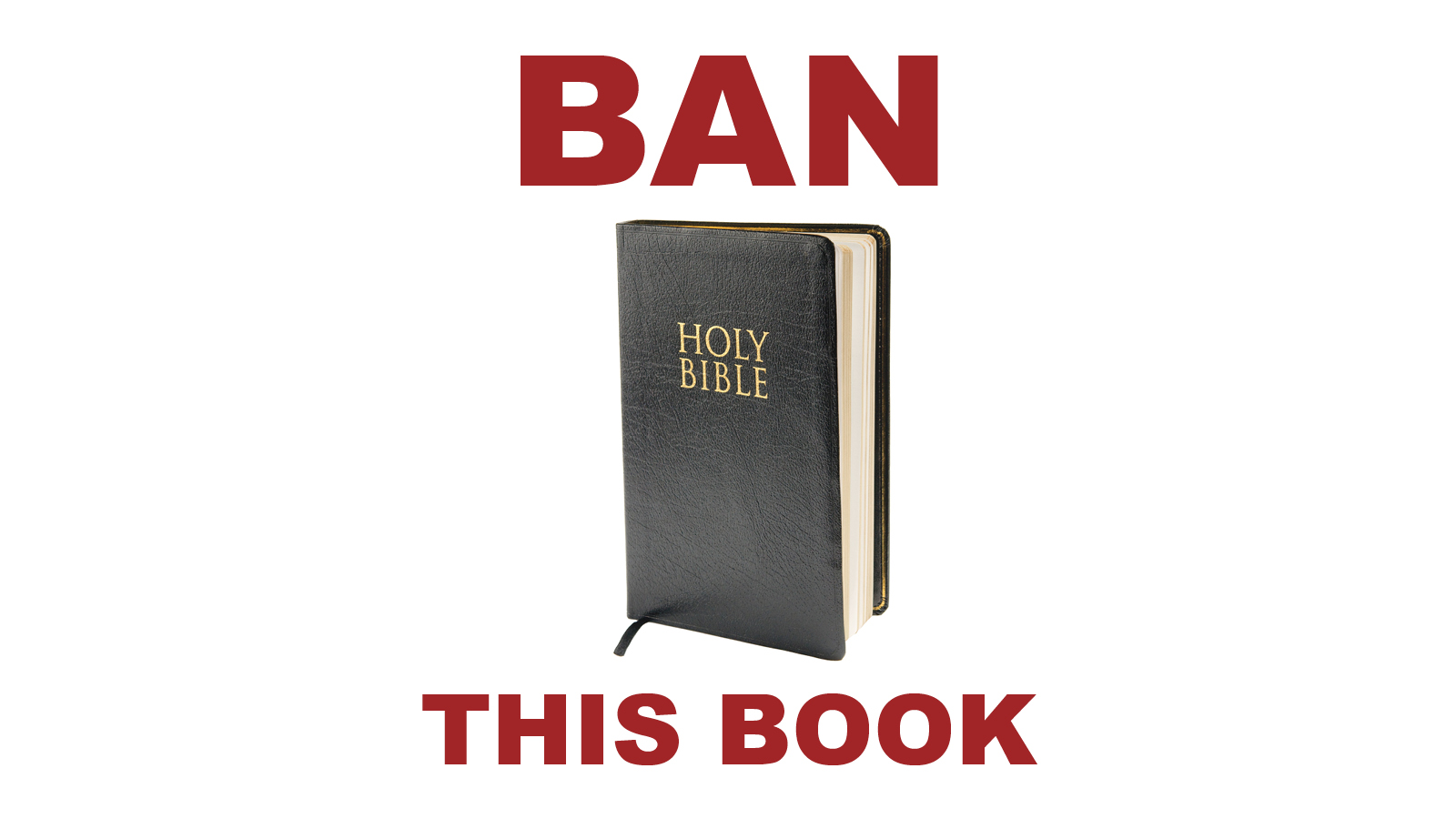
The Freedom From Religion Foundation is demanding that Leon County Schools must ban the bible due to its sexual and violent content after the school system has banned several books at the request of Moms for Liberty.
FFRF, a national state/church watchdog, has learned that the district recently banned five books from its libraries due to “sexually explicit content.” According to the district’s apparent policy and practice, if a complainant brings a book to the superintendent, he will “review them personally and [they will be] removed.” Superintendent Rocky Hanna has explained that “if we come across those we deem are in violation of state statute, we will remove them immediately,” and the books recently removed were “black-and-white, cut-and-dry, need-to-be-removed.”
Among the banned books is Push, by Sapphire, a fictional book about a teenager who has two children and HIV by her father due to rape. The book was the basis of the 2009 Academy Award-winning film “Precious.” Lucky by Alice Sebold, also banned by the district, is a memoir about how the author’s life changed after she was raped as an 18-year-old.
“The district cannot ban books because it disagrees with the viewpoint expressed while allowing other sexually explicit books, like the bible, because it supports their viewpoint,” FFRF Staff Attorney Chris Line writes.
As FFRF’s letter has documented, many bible verses display a lewd, depraved, pornographic view of sex and women, with sexual violence often ordered or countenanced by the biblical deity. These include sordid tales of victims forced to marry their rapists, graphic sexual depictions, and countless references to sperm, intercourse, menstruation, homosexuality, bestiality, adultery and “harlots and whores.” Among one of many descriptions inappropriate for the eyes of children is a bible story about a prostitute who “lusted after her lovers, whose genitals were like those of donkeys and whose emission was like that of horses,” who “longed for the lewdness of your youth, when . . . [her] bosom was caressed and your young breasts fondled.” (Ezekiel 23:20-21)
It is important to note that removal of the bible would not constitute hostility toward Christianity or religion. The district must hold religious texts to the same standards it holds all other library books, review them, and, if they contain the same sexually explicit content as the bible, must also remove them, under the district’s pattern and practice. Removing the bible for its obscenity or graphic sexual content based on neutral criteria is not religious discrimination.
FFRF contends that the best solution, of course, is to stop banning books, leaving a diversity of viewpoints in school libraries, and trusting students to explore complex topics themselves. However, so long as the district is choosing to remove books containing sexual content, the bible may not be given special treatment and must be removed, too.
FFRF cites its dismay that the district has chosen to start removing books from school libraries based on content taken out of context and at the request of extremist groups like Moms for Liberty.
“We want to make it clear that we are adamantly opposed to banning books,” says FFRF Co-President Annie Laurie Gaylor. “But the religious zealots can’t have it both ways. They can’t scour books looking for sexual references or content to offend them — regardless of literary or social value and context — then say that the true obscenity found in the bible must be judged differently.”
FFRF demands that, so long as these five books are banned, the district must not judge the bible any differently, and it must purge the bible from school libraries.
You can read FFRF’s letter here.
The Freedom From Religion Foundation is a national nonprofit organization with more than 40,000 members and several chapters across the country, including over 2,000 members and a regional chapter in Florida. Its purposes are to protect the constitutional principle of separation between state and church, and to educate the public on matters relating to nontheism.

